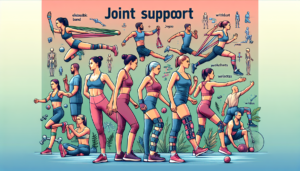Natural Remedies: Non-GMO Supplements for Stress Relief
Understanding Stress and Its Impact on Health
Stress is a natural response to challenging situations; however, chronic stress can have adverse effects on physical and mental health. It can lead to a variety of conditions, including anxiety, depression, digestive issues, and a weakened immune system. Therefore, it is essential to manage stress effectively and explore alternatives such as non-GMO supplements.
Understanding Non-GMO Supplements
Non-GMO (genetically modified organisms) supplements are extracted from plants or synthesized from natural sources that have not been genetically altered. These supplements are perceived as safer and more in line with a holistic approach to health. The cultivation of non-GMO crops tends to adhere to organic farming practices, which often leads to higher nutrient content in the supplements.
Key Natural Remedies for Stress Relief
-
Ashwagandha
- Description: Ashwagandha is an adaptogenic herb known for its ability to help the body adapt to stress. It has been used in Ayurvedic medicine for centuries.
- Benefits: Studies indicate that ashwagandha can lower cortisol levels, decrease stress and anxiety, and improve overall mood.
- Usage: Generally available in capsule or powder form, it’s recommended to take 300-600 mg per day.
-
Rhodiola Rosea
- Description: Another powerful adaptogen, rhodiola rosea helps the body manage stress by enhancing its resistance to physical and mental stressors.
- Benefits: Rhodiola has been linked to improved mental performance under stress and reduced fatigue, making it an excellent choice for those dealing with high-pressure situations.
- Usage: The ideal dosage ranges from 200 to 600 mg of standardized extract daily.
-
L-Theanine
- Description: Found primarily in green tea, L-theanine is an amino acid that promotes relaxation without causing drowsiness.
- Benefits: It can enhance alpha brain wave activity, which is associated with relaxed alertness, and may also lower cortisol levels.
- Usage: A common dosage is between 100 to 400 mg daily.
-
Passionflower
- Description: This flowering plant is known for its calming effects and has been used traditionally for anxiety and insomnia.
- Benefits: Passionflower can enhance GABA (gamma-aminobutyric acid) levels in the brain, promoting relaxation and reducing anxiety symptoms.
- Usage: Typically consumed as tea, tinctures, or capsules; recommended amounts are 200-400 mg of extract daily.
-
Valerian Root
- Description: Valerian root is often utilized for its sedative effects and is frequently recommended for improving sleep quality.
- Benefits: It may reduce anxiety and promote a sense of calm, potentially making it beneficial for stress relief.
- Usage: Consuming 300-600 mg of extract an hour before sleep is common.
-
Chamomile
- Description: Chamomile is a popular herb known for its soothing properties found in tea form.
- Benefits: It has mild sedative effects that can help reduce anxiety and promote sleep.
- Usage: Drinking chamomile tea or taking capsules (400-1600 mg) can be effective.
-
Magnesium
- Description: Magnesium is an essential mineral that plays a significant role in numerous biochemical processes in the body.
- Benefits: It helps regulate cortisol levels and may improve sleep and relaxation.
- Usage: A daily dosage of 200-400 mg is generally recommended.
- Omega-3 Fatty Acids
- Description: Omega-3s are essential fats that play crucial roles in brain health and mood regulation.
- Benefits: Research suggests that omega-3 supplementation can help reduce symptoms of anxiety and depression.
- Usage: A daily intake of 1000-3000 mg of combined EPA and DHA is often considered sufficient.
Formulating a Stress Relief Plan
-
Consult a Healthcare Provider: Before starting any new supplement or remedy, it’s advisable to discuss your health plan with a healthcare professional, especially if you have existing health conditions or are taking medication.
-
Choose Quality Products: Always opt for high-quality, reputable brands that adhere to non-GMO standards. Look for third-party testing to ensure potency and purity.
-
Lifestyle Modifications: Incorporating a healthy diet, regular physical activity, mindfulness practices, and sleep hygiene can significantly enhance the effects of natural remedies.
- Track Progress: Keep a journal to note your stress levels, mood, and any changes observed while using natural supplements. This can provide valuable insights into what works best for you.
Important Considerations When Using Natural Remedies
-
Individual Responses: Everyone’s body responds differently to supplements. What works for one person may not work for another. It may take time to find the right combination of remedies and dosages.
-
Potential Interactions: Natural does not always mean safe. Be aware of potential interactions between various supplements and medications. For example, both valerian root and chamomile can have sedative effects and may amplify the impact when combined with other sedatives.
- Holistic Approach: Supplements are just one part of stress management. Consider integrating other methods like yoga, meditation, or tai chi for a well-rounded approach to stress relief.
The Importance of Research
Understanding the effects, benefits, and potential side effects of any natural remedy is crucial. Many studies back the effectiveness of these non-GMO supplements, but further research is always ongoing. Websites such as PubMed and the National Institutes of Health provide access to a wealth of scientific data.
Finding Non-GMO Supplements
When sourcing non-GMO supplements, consider the following:
-
Label Checking: Look for certifications such as USDA Organic or Non-GMO Project Verified. These labels indicate that the product meets rigorous standards.
-
Local Sources: Farmers’ markets and health food stores are ideal venues for finding high-quality non-GMO supplements. Many small businesses prioritize sourcing natural and organic products.
- Online Retailers: Trusted online health stores often have a comprehensive selection of non-GMO supplements. Always check customer reviews and product quality.
Final Thoughts on Stress Management
Had this been an article intended for practical application, it would emphasize the importance of adopting holistic measures combined with the use of non-GMO supplements to manage stress effectively. Finding balance in one’s lifestyle is crucial for maintaining mental health and reducing the risk of chronic stress-related illnesses. By utilizing natural remedies, individuals can navigate their stressors in a more balanced and health-conscious manner, enhancing their overall well-being. Consistent skeletal and cardiovascular health can often be linked back to our mental health, highlighting the interconnectedness of body and mind.








